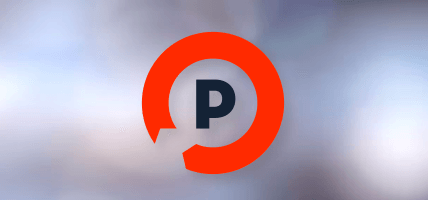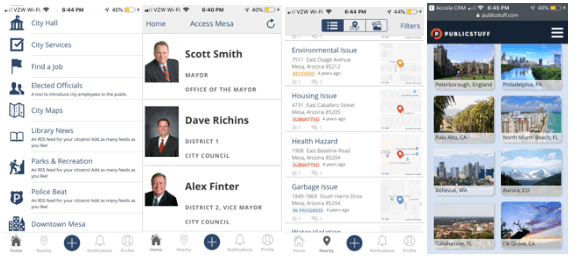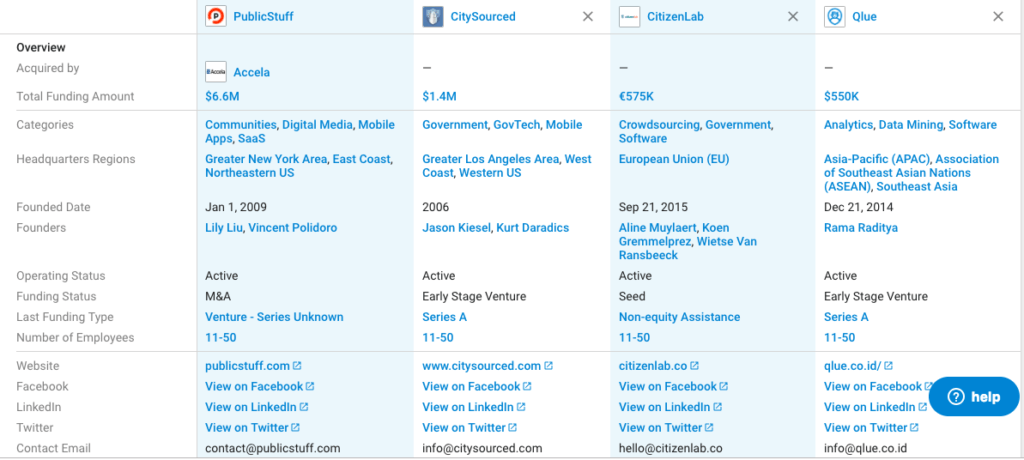Text the City hall and Actually Get a Response

A civic engagement mobile app that digitalizes government and transforms it into an agile bureaucracy
“Dear Lifehacker, I’ve been trying to get my city council to pay attention to some issues in my neighborhood that have been going on for a while now…”
The answer, among all the administrative steps, is to make sure you reach the right office, the appropriate department, the correct name or contact information, and that you document the issue impeccably.
PublicStuff, a cloud-based civic engagement mobile application for a government, provides a better life hack on your fingertips. It does all those steps for you within seconds and gets your problem fixed as soon as at the same day after you typed it. It is a civic engagement app: a social media that connects citizens to directly communicate with City Hall using the Platform routed to the appropriate department and transparently tracked
Chasing Waterfalls
The government’s performance is mainly determined by how effective it serves the citizens and solves its urban problems. Unfortunately, this becomes a tough goal because of bureaucracy that flows in the waterfall.
The bureaucracy was originally an innovation designed to achieve rationality and efficiency through its hierarchical authority, specialized labor division, and standard operating procedures. But this vertical-horizontal division makes the system slower, communication lines longer, and productivity lower. It also creates disengaged robots, killing their potentials and trapping them inside iron cages. With population increase, these organizations cannot keep up with their citizens’ demands. It is critical for government bodies to increasingly adapt agile.
Lily Liu, the founder of PublicStuff who worked as a government official for 10 years in California, Washington DC and NYC realized the challenges that citizens face when dealing with bureaucracy. It can be complicated and time-consuming for citizens to directly communicate with different government agencies, let alone to get better effective public services. Fixing this problem traditionally is expensive. Building the infrastructure, including a call center, processes reorganization, and human resources can cost millions of dollars.
Agile Bureaucracy: An Oxymoron?
PublicStuff, a company that is based in New York City, answers this problem using technology by creating a civic engagement app and websites that facilitate of the citizen service request and citizen relationship management (CRM) in the industry. This technology integrates government agency workflow and disrupting the waterfall system into semi-agile. This allows residents to get better customer experiences from the local government with a 24/7 digital communication system and access to service requests. It also allows sharing information with other citizens, letting other citizens to be aware of the danger. It is basically 311 version 2.0.
How does it work?
The app promotes bottom-up public engagement, enhance transparency, simplify bureaucracy by connecting citizens’ complaints regarding public facilities straight to the fingertips of the municipality officers who will then follow up with an order for necessary services e.g. street lights, leaking pipe, dead animals, street defect, illegal street vendors, graffiti and potholes, requesting police assistance, finding jobs, asking questions, pay bills or learning more about who their elected officials are, etc. It also monitors and provides real-time crime report with mapping.
PublicStuff dispatch these reports in real time to relevant local authorities by cutting bureaucracy line for problem reporting. Complaints received by the Head of District go to the right department such as the City Department of Public Works, the police officers, emergency rooms, etc. Each report status can be monitored using the online application dashboard. This platform also helps to provide real-time data for and from the citizens and government officials to accelerate productivity and responsiveness.
During Hurricane Sandy, PublicStuff helped the residents to keep the officials and each other alert on important updates blocked streets, disrupted power, and other emergency situation, right from their mobile phones.
Business model
Launched in 2010, PublicStuff attracted over 200 cities within 3 years with total funding of US $6.6 million. In 2018 it entered the Merger and Acquisition phase when acquired by Accela. Now it has more than 150 subscribing municipalities. The city subscription pricing varies based on population, from about $1,000 to $20,000 annually, depending on the application edition and the size of the municipality, which affects how much work is needed to integrate with the existing systems. Since its acquisition, PublicStuff integrated One Voice, a real-time translation app with 16 languages, removing time and language barriers between citizens and the city hall.
Not only improving response time and accessibility, Publicstuff cuts the average cost for city staff to record a service request from $9 (walk-in) and $5.30 (phone-call) down to down to $0.65 by automating it. Cities using PublicStuff saved between $16,000 to $320,000 annually. Philadelphia saved $6,600 and 120 hours in the three-day hurricane Sandy. In the US, with over 2,000 government agency being their customers, it provides solutions to more than 60% of the population.
However, PublicStuff allows requests or issues to be submitted anonymously. This could potentially create a dilemma where information liability is being traded off with privacy. Another challenge for the company is that there are increasingly competitions building similar or the same services. The three biggest ones are as seen below.
The Hardest Part: Transitioning
Using technology to digitalize government platform is very powerful because it saves cost, improves transparency, and empowers the government with data and the citizens with a voice. PublicStuff and its competitors are expanding their services worldwide. The digital government will definitely soon be the norm all over the world.
Transitions from waterfall to modern agile processes can be difficult in all sectors, especially from bureaucratic systems. According to a study, it is difficult to completely transform the iterative development framework from bureaucratic, trust challenged environments that traditionally lack organizational infrastructure. It rather needs to adopt lighter agile approaches. Changes can seem rapid with technology, but the overall bureaucratic culture follows much slowly. However, a small change will transform the ancient system into a new, empowering one.




